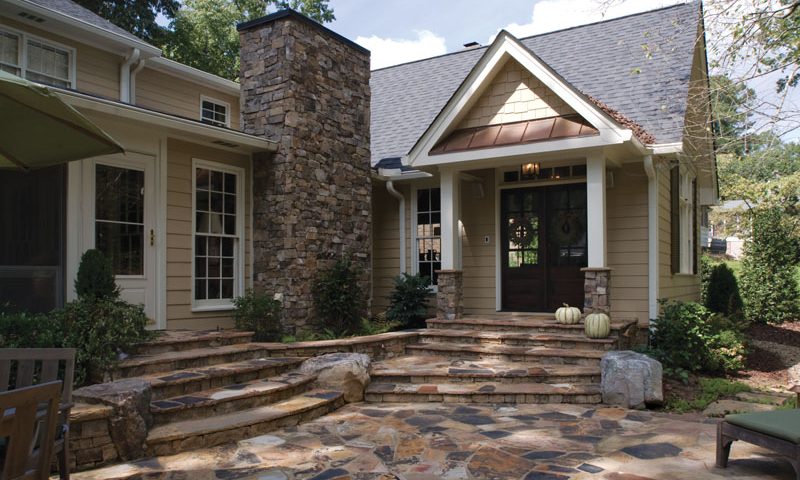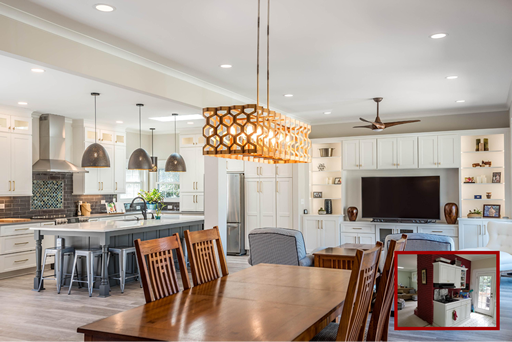Items to Avoid Going Cheap on When Remodeling Your Home

Choosing the right Remodeler For You
August 7, 2018Items to Avoid Going Cheap on When Remodeling Your Home

HarbourTowne Construction, remodel, addition, exteriors, family, room, traditional, stone, steps, chimney, doors,
If you’re thinking about remodeling your house and the only thing holding you back is the potential price tag, consider thinking of the remodel not in dollars spent, but instead as an investment. After all, the upgrades you make to your house will just drive up its value if or when you decide to sell it.
Even so, despite knowing remodeling costs are an investment, it can be tempting to cut corners to save money. You should resist that temptation however. It is only going to cost you more money if something goes wrong in your home because you took a shortcut financially.
Does this mean you have to spend top dollar on all of your remodeling materials? Of course not! There are number of things you can be cost conscious about, but there are others that you get what you pay for. Here are four items you don’t want to go “cheap” on when you remodel your home.
1. Major Supplies
You might want to buy all of the material for your remodel yourself, but you should leave this task to your contractor. This is especially true for major remodel supplies for your bathroom, kitchen, etc. such as:
- Cabinets
- Windows
- Tile
- Bath Fixtures
While you may be anxious to do some shopping yourself, put your trust in your contractor. They can give you a list of suppliers and designers to work with that can assist you in choosing your materials. While your contractor, suppliers and designers handle the materials, you can put your focus on decorating and making your house a home.
2. The essentials
Don’t use low-quality kitchen cabinets when you remodel your kitchen so you can pay for expensive, non-essential accessories. You may save money initially, but low-quality materials are likely to break and need to be replaced at some point and they won’t be free. Instead, pay more for the essentials now and wait until you can save up again for that fancy chandelier.
If your remodel will include adding flooring, you’ll want to order extra—at least 10% more just to account for any of it breaking during installation. Buying more flooring initially will cover you just in case there isn’t an exact match at the store if you come up short. Again, your contractor and floor supplier have the experience to guide you on your flooring purchase.
Other items you want to avoid cutting corners on include anything that would be hard to replace. This would include bathtubs and foundational, permanent items like structure frames, or cladding on the outside of your home.
Don’t forget about doors and windows! Higher quality windows and doors are not only better for you and your family’s safety and security, but they could also help you save money when it comes to energy costs.
3. Your contractor
This is your home; don’t you want the best person working on it? Remember, the “best” does not necessarily mean, “highest priced.” It is possible to find someone who will do good work that is within your budget. Harbour Towne Construction, for example, has been doing remodel projects for more than 30 years and offers rates that are competitive within the industry, but not so low customers are left wondering if it’s just trying to get the job.
What you don’t want to do is hire someone because their price was the lowest. Hiring solely on price (especially low price) could result in sloppy work that you will just have to fix later. Unless you are a contractor by trade, avoid the “DIY” approach, especially for major remodeling projects.
The work will probably take longer than if you hired a general contractor who brings a knowledge and expertise to your remodel that will get the job done correctly the first time around.
4. “Blind items”
During a home remodel, it can be easy to get preoccupied with the most visible, big-ticket items like kitchen cabinets, countertops or the new shower tile in the bathroom. Materials you don’t see are one way of cutting corners that you won’t know about until it’s too late and a system fails prematurely. However, it is also important to know that your contractor is using quality materials.
Remodeling your home is an investment; make it a good one by purchasing quality materials and working with a knowledgeable, but fairly-priced contractor like Harbour Towne Construction. Since you’re spending the money anyway, remember to do it so that your renovations are done properly the first time. That way you will avoid paying more later to have items fixed or replaced.


